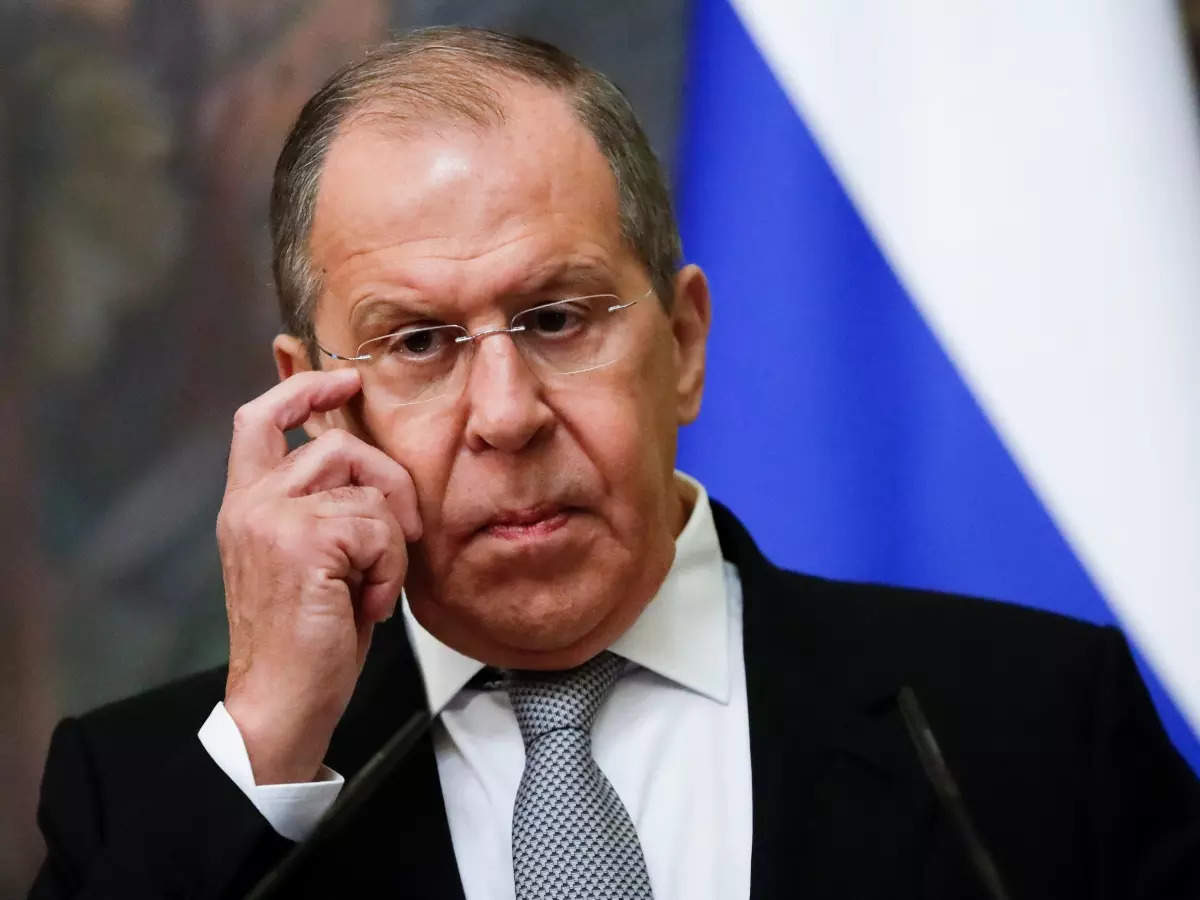NEW DELHI: Russian foreign minister Sergey Lavrov, who will represent Russia in the G20 summit, warned on Friday that Russia will block any summit Declaration that doesn’t reflect Moscow’s views on Ukraine and other crises.
“There will be no general Declaration on behalf of all members if our position is not reflected,” Lavrov was quoted as saying, ahead of G20 Sherpameeting that will look to break the deadlock over the Ukraine war.With a consensus unlikely on the conflict, Lavrov said that another option would be to adopt a document that focused on “specific decisions in the sphere of G20 competences, and let everyone say the rest on their own behalf”.
Russia wants no mention of Ukraine in the joint Declaration but will agree to it if the document also addresses its concerns related to Ukraine.In Delhi, Russian ambassador Denis Alipov said there was a consensus among the G20 nations on all issues except the Ukraine conflict and the contentious matter should be removed from the draft of the leaders’ communique to pave the way for its release at the summit next week. The envoy said Russia has been “very openly” supporting India’s priorities under its G20 presidency and hoped that the summit will be a “huge success” for India and the whole world.
There have been sharp differences between the Russia-China combine and the Western countries over the text to describe the Ukraine crisis. “Obviously, the situation is complicated. There is no consensus on Ukraine (issue),” Alipov said at an interactive session with journalists.
India will host the G20 summit in New Delhi on September 9 and 10 in its capacity as the current president of the grouping. In the text of the draft communique, two paragraphs on the Ukraine conflict were taken from G20 ‘leaders’ Bali declaration that was unveiled in November last year.
Both Russia and China had agreed to the two paragraphs on the Ukraine conflict in the Bali declaration, but they backtracked from it this year creating difficulties for India to build consensus on the tricky issue.
“We should remove the nonconsensual issue from the agenda to agree on other very topical issues such as climate change, sustainable development, financial crisis, food crisis,” Alipov said.
“There will be no general Declaration on behalf of all members if our position is not reflected,” Lavrov was quoted as saying, ahead of G20 Sherpameeting that will look to break the deadlock over the Ukraine war.With a consensus unlikely on the conflict, Lavrov said that another option would be to adopt a document that focused on “specific decisions in the sphere of G20 competences, and let everyone say the rest on their own behalf”.
Russia wants no mention of Ukraine in the joint Declaration but will agree to it if the document also addresses its concerns related to Ukraine.In Delhi, Russian ambassador Denis Alipov said there was a consensus among the G20 nations on all issues except the Ukraine conflict and the contentious matter should be removed from the draft of the leaders’ communique to pave the way for its release at the summit next week. The envoy said Russia has been “very openly” supporting India’s priorities under its G20 presidency and hoped that the summit will be a “huge success” for India and the whole world.
There have been sharp differences between the Russia-China combine and the Western countries over the text to describe the Ukraine crisis. “Obviously, the situation is complicated. There is no consensus on Ukraine (issue),” Alipov said at an interactive session with journalists.
India will host the G20 summit in New Delhi on September 9 and 10 in its capacity as the current president of the grouping. In the text of the draft communique, two paragraphs on the Ukraine conflict were taken from G20 ‘leaders’ Bali declaration that was unveiled in November last year.
Both Russia and China had agreed to the two paragraphs on the Ukraine conflict in the Bali declaration, but they backtracked from it this year creating difficulties for India to build consensus on the tricky issue.
“We should remove the nonconsensual issue from the agenda to agree on other very topical issues such as climate change, sustainable development, financial crisis, food crisis,” Alipov said.
